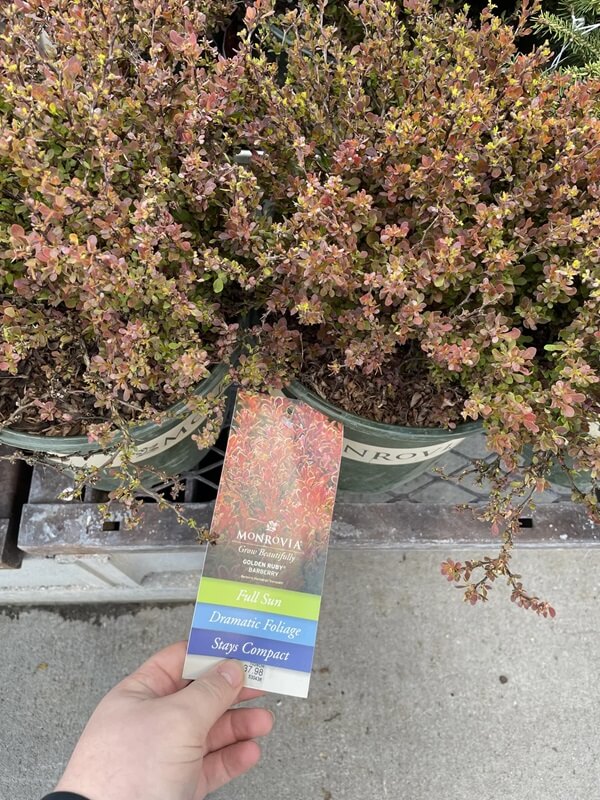A Redditor has issued a friendly PSA about a particular invasive plant and the importance of care while plant shopping.
They shared a photo of potted Japanese barberry shrubs — which, while beautiful, are not ideal for gardening in the United States — to the subreddit r/Iowa.

"Japanese barberry are an invasive species in North America and are contributing to the increased tick population," they captioned their post. "I found this at Lowe's, but lots of nurseries carry invasive species."
They included a list of other invasive plants to watch out for, including English ivy and Chinese silvergrass.
This Redditor is correct — according to the Michigan Department of Natural Resources, Japanese barberry is native to Japan and was introduced to the U.S. in the late 1800s as an ornamental plant. And, per the Pennsylvania Department of Conservation and Natural Resources, it can grow "pretty much anywhere" and has overtaken landscapes from Northern Quebec to Georgia and as far west as Wyoming.
Additionally, higher densities of ticks reside under barberry than under native shrubs, and the plant has been implicated in the spread of Lyme disease, per the Michigan DNR.
These are just a few reasons why we don't want to contribute to the spread of invasive species while shopping for landscaping or gardening supplies. If we are thoughtful about the plants we select, both in terms of their growing habits and indigeneity to our regions, cultivating native plants can be a fulfilling and accessible way to make a sustained and positive impact on the environment.
Beyond bringing vibrance and variety to our yards, native plants create food and shelter for local wildlife and a healthier ecosystem for pollinators all year round. This ultimately benefits humans, as pollinators protect our food supply. Aside from native plant gardens, other eco-friendly, low-maintenance landscaping options include planting buffalo grass, which is native to North America, and xeriscaping.
The comments were populated with fellow gardeners complaining about barberry as well as several suggestions for native plant nurseries.
"We had to rip out so much of the stuff when we bought our house," one user wrote. "It sucked.""If you can get yourself to Des Moines," another person said, "there are several independently owned companies who are selling natives."
Join our free newsletter for cool news and actionable info that makes it easy to help yourself while helping the planet.









